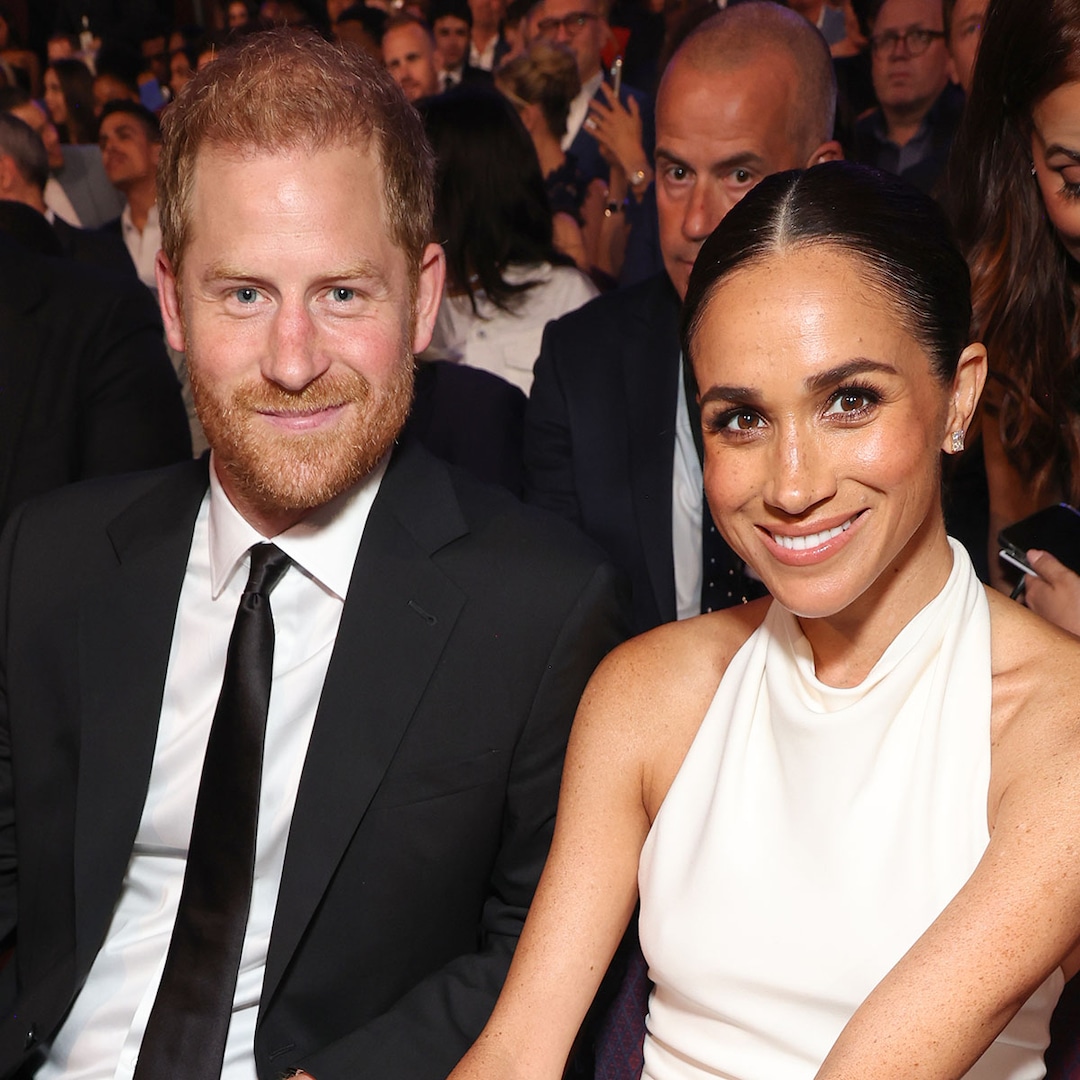Meghan Markle Explains Why She Still Uses the Sussex Name — and Why It Matters to Her Family
.png)
Meghan Markle, Duchess of Sussex, has once again found herself at the centre of public debate—this time over something seemingly simple: her name.
Ever since she and Prince Harry stepped back from their senior royal roles in 2020, critics and commentators have asked the same question: Why does she still use the title Duchess of Sussex, and why does the name “Sussex” remain so closely tied to her identity?
Now, in a revealing new interview, Meghan has addressed the confusion, giving an intimate explanation that blends personal identity, motherhood, and cultural misunderstanding.
“This Is Our Family Name”

Speaking to Bloomberg’s Emily Chang, Meghan described the attachment she feels to the Sussex title—not as a symbol of royalty, but as a reflection of her family unit.
“You have kids and you go, ‘No, I share my name with my children,’” Meghan said. “I didn’t know how meaningful it would be to me, but it just means so much to go, ‘This is OUR family name. Our little family name.’”
It’s a declaration that highlights how much has changed since Meghan was an actress known simply as Meghan Markle. She and Prince Harry are now parents to two young children, Prince Archie and Princess Lilibet. For Meghan, the family surname is about belonging, continuity, and the grounding bond between parent and child.
A Complicated Construct
Still, Meghan admitted the matter is far from simple. “It’s a complicated one for people to understand because a last name is not typical in that construct,” she explained.
The duchess went on to clarify that Sussex is technically a dukedom. “My legal name is Meghan, Duchess of Sussex,” she said. “Since we’ve been married, that’s what I’ve been called. Sussex for us works as our family name, and it’s the name that we share with our children.”
In the UK, royal titles don’t work the same way surnames do in the United States, which is part of why Meghan recognizes the confusion. “I get it because I’m American,” she admitted. “I went there and I started to understand, then you come back [to the US] and as an American, you go, ‘I’m so confused.’”
An Ongoing Question of Identity
The duchess’s remarks speak to a deeper issue that has followed her ever since her 2018 marriage to Prince Harry: the question of identity. To some critics, the title “Duchess of Sussex” is a relic of an institution she and Harry left behind. To Meghan, however, it has become less about the monarchy and more about family unity.
“What I learned about myself is no matter what my name is or what people call me, I’m still the same person,” she said. “That didn’t change who I am. And maybe that’s probably the biggest distinguishing factor.”
In other words, Meghan insists that while titles and surnames may shift, the essence of who she is has not.
From Inauthenticity to Authenticity

Her comments also circle back to past confessions about feeling “inauthentic” during her time as a working royal. Meghan has openly spoken about strict dress codes she felt forced to follow, recalling one fashion rule in particular.
“It was different several years ago when I couldn’t be as vocal and I had to wear nude pantyhose (tights) all the time. Let’s be honest, that was not very myself,” she revealed.
Laughing, she added: “I hadn’t seen pantyhose since movies in the 80s when they came in the little egg. That felt a little bit inauthentic. And that’s a silly example.”
But for Meghan, even that “silly example” symbolized something larger: the way an external role can strip away one’s sense of self. Today, she says, she is in a different chapter of her life.
“It is an example of when you’re able to dress the way you want to dress and you are able to say the things you want to say that are true and be able to show up in a space that is really organically and authentically,” Meghan reflected. “That’s being comfortable in your own skin. Right now I don’t feel I need to prove anything.”
Critics Still Skeptical
Despite her candidness, Meghan’s explanation has not silenced all critics. Some continue to argue that by holding onto the title, she and Harry are still benefiting from the very institution they stepped away from.
Others, however, see her words as sincere—a reminder that names carry deep personal and emotional meaning, especially when children are involved. The debate, like much of Meghan and Harry’s life, reflects the complex crossroads between tradition and modern identity.
More Than a Name
Ultimately, Meghan’s insistence on keeping the Sussex name may not convince everyone, but it does reveal something crucial: to her, it represents family, belonging, and stability in a world where she has often felt scrutinized and displaced.
The duchess closed her reflections with one simple truth: “What I’ve learned is that no matter the name, I am still Meghan. That will never change.”
For all the debates swirling around her, Meghan’s words underline a universal truth: names may evolve, but identity and authenticity endure. And for Meghan, “Sussex” is less about monarchy—and more about home.


